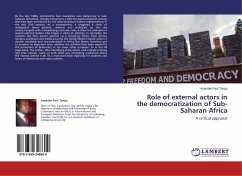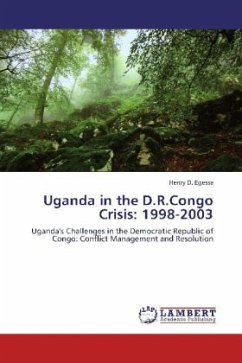
FOREIGN ACTORS IN LIBYAN CRISIS:
POLITICAL INTERESTS
Versandkostenfrei!
Versandfertig in 6-10 Tagen
41,99 €
inkl. MwSt.

PAYBACK Punkte
21 °P sammeln!
There are different approaches to the handling and investigation of the Libyan crisis. One approach presents the fragile nature of Libyan national identity and the existence of an unmanageable structure due to tribalism, localism and regionalism as the reasons for the Libyan crisis. The other approach explains the beginning of the crisis and the lack of stability and resolution until now, with a political polarization between secular and Islamist sides. Both approaches contain accurate determinations. However, the Libyan crisis will be incomplete if the issue is tired to be explained by one or...
There are different approaches to the handling and investigation of the Libyan crisis. One approach presents the fragile nature of Libyan national identity and the existence of an unmanageable structure due to tribalism, localism and regionalism as the reasons for the Libyan crisis. The other approach explains the beginning of the crisis and the lack of stability and resolution until now, with a political polarization between secular and Islamist sides. Both approaches contain accurate determinations. However, the Libyan crisis will be incomplete if the issue is tired to be explained by one or two of these approaches. An approach where both approaches are combined and the role of external actors is added will be the most complementary explanation. In this context, this study aims to reveal how much external actors are involved in the emergence of uprising in Libya.












